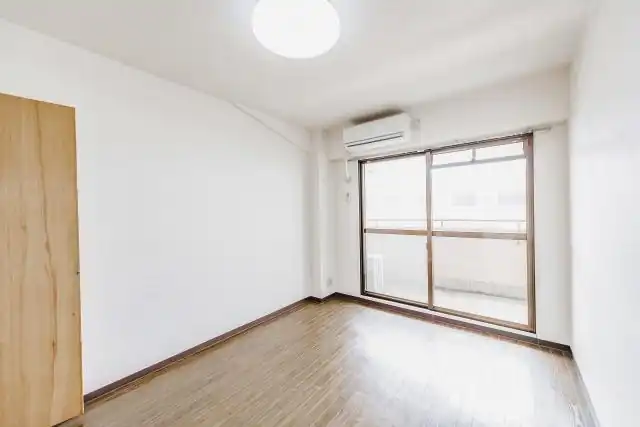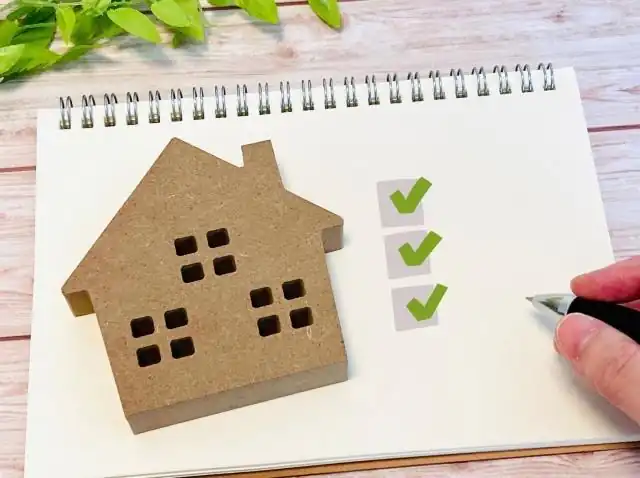Many first-timers probably wonder how long the moving process will take or even where to start. It is essential for them to understand the entire process, from finding their apartment to moving in, and to gather information in advance.
So, this time, here’s a guide for the 5 steps you need to start living alone. You will be able to figure out how long it will take to move and how to efficiently prepare for living alone – from finding an apartment to move-in day.
Step 1: Looking for an Apartment Based on Search Criteria

Before looking for a rental property, jot down your desired criteria in detail. If you write them out in advance, you can smoothly search for a property with a real estate company.
Area of Residence
Desired living areas vary from person to person. Everyone has different priorities, such as a location convenient for commuting to work or school or for daily life, such as a supermarket or shopping district near the closest station. However, if you try to find a property that meets all your criteria, you may find the rent too high or there are few choices.
Hence, if you expand your horizons beyond stations near your work or school and include areas two or three stations away, you may find a property with low rent that can be accessed within a 5-minute walk from the station.
As a result, you might find your ideal home without much difference in your overall commuting time. It will be easier to search with an open mind rather than just looking at one station or area.
Floor Plan
Properties for single-person residences generally have floor plans such as the 1R (One-room or studio room) or 1K. In a 1R, the kitchen, living room, and entrance are all one room and are not separated. Meanwhile, in a 1K, the kitchen and living room are separate.
Specifically, a 1R is a 6-tatami mat* Western-style room with a kitchen, living room, and entrance. But in the case of a 1K, the living room has 6 tatami mats, which does not include the kitchen space. Therefore, even though it is written as 6 tatami mats, a 1K is more spacious. When looking for a property, consider the characteristics of the floor plan when choosing.
*1 tatami mat = approx 16.5-square feet or 1.53-square meters
Rent Budget
It’s said the average rent should be less than 1/3 of your monthly income. Typically, an important part of tenant screening is whether or not you can set aside 1/3 of your monthly income to rent.
In short, if your annual income is 2 million yen, you need to limit your rent to about 50,000 yen; if you make 3 million yen, you should keep your rent to 75,000 yen. Create a reasonable budget for rent once you understand your overall income and expenses.
Step 2: Apartment Viewing and Decision

When you find a property you’re interested in, contact the real estate company and go see it. You can also go directly to the real estate agency, but they may be slow to respond due to other customers or unable to assist that day. However, if you reserve a viewing in advance, the keys and other arrangements can be prepared so that the process will go smoothly.
It is also vital to find not just one property but several other potential properties and inquire about them. Likewise, ask your real estate agent to search for other similar properties. They may be able to introduce you to new properties that are unavailable on the website.
During the apartment viewing, you can check things such as sunlight, ceiling height, utilities, and the surrounding environment that cannot be seen from floor plans or photos. Also, if the utilities or wallpaper is dirty or damaged, you can check with the real estate agent to see if they will repair it before you move in.
Step 3: Tenant Screening

Once you have decided on a property you like, you will undergo a tenant screening. You’ll fill out the necessary information on the application form and submit identification documents of the contract holder and proof of income (ex: withholding tax slip) for the contract holder and the joint guarantor.
In most cases, the review will be completed within 2-3 days, but sometimes, it may take up to a week. The following items will be checked during the screening.
・Do you have common sense? (your personality)
・Do you have the ability to pay the rent?
・Does the joint guarantor have the intention to guarantee?
A joint guarantor is a person who pays the rent in place of the tenant if the tenant is unable to pay the rent or pay for the repair of damaged utilities for some reason. Usually, it is common for a family member or relative who understands the rental contract to act as a guarantor.
Please note that in some cases, agents will check with your guarantor during the tenant screening stage to see if they are willing to provide a guarantee, so it is a good idea to obtain your guarantor’s consent in advance.
Step 4: Signing the Contract and Key Handover

Once the tenant screening has been completed, you will recheck the contract details. If there are no problems, you will continue with the contract proceedings. The following things are required when signing a rental contract:
(Required information may vary depending on the real estate company and property.)
Required Documents
・Copy of Resident Certificate (within 3 months) [住民票]
・Certificate of Seal Registration (within 3 months) [印鑑登録証明書]
・Personal Seal (Private seal/registered seal/bank seal *Shachihata seal is not allowed)
・Car Registration [車検証] when renting a parking space
・If you have a pet, vaccination certificate [予防接種証明書]
Required Documents for Joint Guarantor
・ID card (driver’s license, passport, etc.)
・Registered seal
・Certificate of Seal Registration (within 3 months)
・Copy of guarantor’s Resident Certificate (within 3 months)
Residence certificates and seal registration certificates must be issued at a government office. Also, if your joint guarantor lives outside the prefecture, please note it will take time to communicate by mail. Therefore, it’s a good idea to manage time-sensitive documents beforehand.
Generally, you will be given the keys once the rental contract proceedings have finished. Still, if you are moving from a faraway place, be sure to confirm that for some peace of mind.
Step 5: Before and After Moving Checklist Including Utilities

Once the property contract is finalized, you can get ready to move. Let’s make a checklist for “before moving” and “after moving.”
Before moving
・Cleaning up and packing
・Arrange a moving company
・Submit Forwarding Notification to post office [転送届]
・Submit a Change of Residence Notification [転出届]
・Procedures for utilities such as electricity, gas, and water
・Application for internet connection in new home
・Change address on a smartphone
・Prepare curtains and lighting for the new home
・Arrange for home appliances such as refrigerators and washing machines
After moving
・Submit a notification of transfer of residence [住民票の転入届]
・Change of address on My Number Card
・Change of address for car
・Change of address on driver’s license
・Notify your company or school of your address change
・Financial institutions (banks and credit cards)
・National pension
・Health insurance card
・Life insurance
・Internet shopping sites
There are a few things you should keep in mind. When choosing a moving company, you should request quotes from multiple companies and compare them. Also, check the service details and fees, then choose a company you are satisfied with.
Also, depending on the time of year (busy season) and the carrier, it often takes more time than expected to set up the internet in your new home. So, once you have decided to move in, please apply online first.
Note that permission from the management company is required for internet connection installation, so please remember to obtain permission.
Most of the time, it takes about 1 to 2 months from start to finish. You may think it’s difficult because there’s so much to do, but once you’ve completed these five steps, it’s the beginning of a fun new life.
Village House has over 1,000 properties in 47 prefectures nationwide, starting from the 20,000 yen range. In addition, there are no security deposits**, key money, handling fees, or renewal fees, so you can save on initial costs.
**A security deposit may be required depending on the contract details.
If you are looking for a property to live alone for the first time, feel free to consult Village House, where you can enjoy living at an affordable price.
Related articles:
- Living Alone for the First Time? Checklist of All the Things You Need
- Starting Fresh: All the Necessities You Need for Your New Home
- First Time Renting Alone? Essential Questions to Ask Your Real Estate Agent
- Apartment Viewing for People Living Alone: What You Need to Check and How to Be Ideally Prepared!
- Is Living Alone on a Monthly Income of 120,000 Yen Possible? Estimated Living Expenses and Tips for Saving Money



